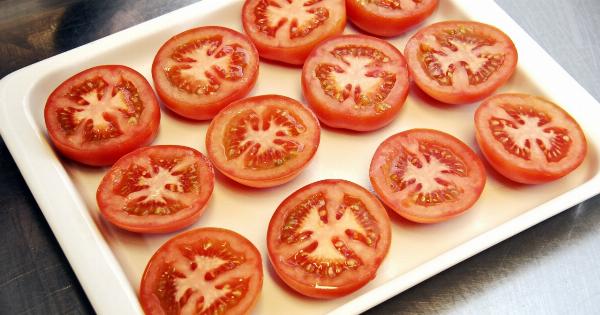Welcome to this comprehensive guide on how you can harness the power of vegetables to reduce the itch caused by herpes outbreaks. Herpes is a common viral infection that affects millions of people worldwide.
While there is no known cure for herpes, certain vegetables have been found to provide relief and minimize itching discomfort. Incorporating these vegetables into your diet can not only enhance your overall well-being but also help alleviate the symptoms associated with herpes outbreaks.
Understanding Herpes and Its Symptoms
Herpes is a viral infection caused by the herpes simplex virus (HSV), which exists in two forms: HSV-1 and HSV-2. HSV-1 primarily causes oral herpes, affecting the mouth and facial areas, while HSV-2 is responsible for genital herpes.
Both forms can result in painful outbreaks characterized by fluid-filled blisters, fever, headaches, and itching sensations.
The Role of Vegetables in Herpes Management
Vegetables are packed with essential vitamins, minerals, and antioxidants that bolster your immune system and reduce inflammation.
A robust immune system helps control the frequency and severity of herpes outbreaks, while reducing inflammation can alleviate discomfort, including itchiness. Let’s explore ten beneficial vegetables that can aid in your battle against herpes itch.
1. Garlic
Garlic possesses powerful antiviral properties due to its high concentration of a compound called allicin. Allicin works by inhibiting the growth of the herpes virus, thereby reducing its ability to cause outbreaks and itchiness.
2. Broccoli
Broccoli is rich in antioxidants, particularly indole-3-carbinol (I3C), which has demonstrated antiviral activity.
Including broccoli in your diet can strengthen your immune system, making you less susceptible to herpes outbreaks and subsequent itchiness.
3. Spinach
Spinach contains a substantial amount of lysine, an amino acid known to counteract the effects of arginine. High levels of arginine in the body can trigger herpes outbreaks, including itchiness.
Consuming spinach regularly helps maintain a balance between lysine and arginine, reducing the likelihood of outbreaks.
4. Bell Peppers
Bell peppers are an excellent source of vitamin C, which is essential for a strong immune system. Research suggests that vitamin C may play a role in reducing the frequency and duration of herpes outbreaks, consequently alleviating itchiness.
5. Kale
Kale is a nutritional powerhouse, packed with vitamins A, C, and E, along with various minerals. This leafy green vegetable helps support your immune system and promotes healing, potentially minimizing itchiness associated with herpes outbreaks.
6. Brussels Sprouts
Brussels sprouts contain a compound called indole-3-carbinol, similar to broccoli, which has shown promise in reducing the severity of herpes outbreaks. Including Brussels sprouts in your meals may help alleviate itchiness by combating the virus.
7. Cabbage
Cabbage is rich in vitamins C and K, both of which are vital for immune function and skin health. Consuming cabbage regularly can enhance your body’s resilience to herpes infections, thus reducing itchiness and promoting faster healing.
8. Carrots
Carrots are rich in beta-carotene, an antioxidant that gets converted into vitamin A in the body. Vitamin A is known to facilitate skin repair and prevent viral replication, potentially reducing the severity and itchiness of herpes outbreaks.
9. Asparagus
Asparagus is a natural source of glutathione, a powerful antioxidant that helps boost immune function and reduce inflammation. By incorporating asparagus into your diet, you may experience decreased itching sensations during herpes outbreaks.
10. Sweet Potatoes
Sweet potatoes are packed with beta-carotene, which, as mentioned earlier, is beneficial for skin health and immune support.
Additionally, sweet potatoes can help stabilize blood sugar levels, as imbalances can weaken the immune system and exacerbate herpes symptoms, including itchiness.
Incorporating Vegetables Into Your Diet
Now that we’ve explored ten vegetables that can help reduce herpes-induced itchiness, it’s essential to find creative ways to incorporate them into your diet.
Consider adding them to salads, soups, stir-fries, or even enjoying them as side dishes. Experiment with different recipes and combinations to ensure you are getting a diverse range of nutrients from these vegetables.
Conclusion
While vegetables cannot cure herpes, they can undoubtedly aid in managing the symptoms and reducing the discomfort associated with outbreaks, including itchiness.
Incorporating garlic, broccoli, spinach, bell peppers, kale, Brussels sprouts, cabbage, carrots, asparagus, and sweet potatoes into your diet can boost your immune system, reduce inflammation, and potentially minimize the frequency and intensity of herpes outbreaks.






























